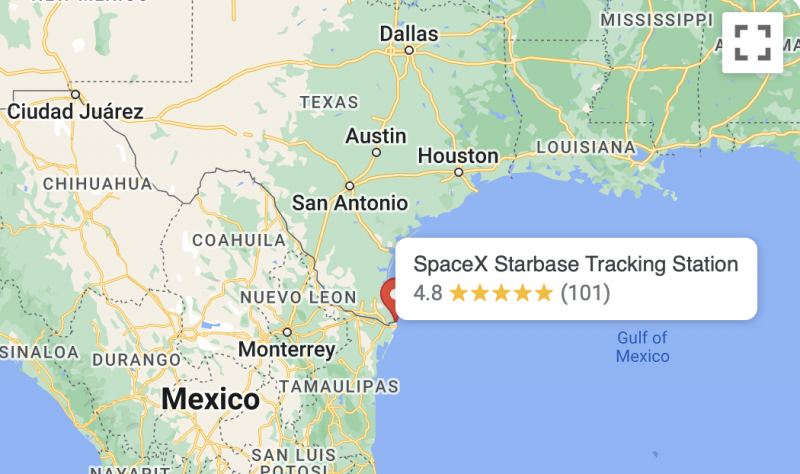
5th delay in Starbase environmental assessment
In the midst of media chatter about Elon Musk’s pending Twitter purchase, the Federal Aviation Administration (FAA) announced another month-long delay in publication of its initial environmental assessment of SpaceX’s expansion plans for its Starbase in Boca Chica, Texas. The announcement – which marks the fifth time the FAA has promised the document then failed to deliver – is delaying SpaceX’s hope to build Starbase into a complete construction and launch facility for its Starship spacecraft and Super Heavy rocket. These two are critical components of what some are calling a spaceflight revolution.
Even if the FAA does produce the PEA (Programmatic Environmental Assessment) by May 31, a positive assessment doesn’t guarantee final approval for the project. When the PEA is finally presented, according to FAA rules, a full environmental impact statement could still be required for the expansion plan.
The announcement of the latest delay came via the FAA’s official Twitter account last Friday:
The FAA continues its Programmatic Environmental Assessment for the proposed @SpaceX Starship/Super Heavy project in Boca Chica, Texas. The new target date for issuing the final PEA is May 31. Learn more at https://t.co/CZy1jVb5qM. #FAASpace pic.twitter.com/Bw7JSuo8hQ
— The FAA ?? (@FAANews) April 29, 2022
Also pending: Historical properties review
One other review remains to be completed. Also pending for the Starbase expansion is an assessment of how the project could affect historically important properties at or surrounding the site. Work can’t proceed before this important analysis, called a Section 106 Review, is completed.
Some launches moved away from Starbase
Originally, SpaceX envisioned Starbase as a launch facility for the Falcon 9 and Falcon Heavy lift vehicles. But liftoffs of the Falcon series rockets have since moved to launch facilities at Kennedy Space Center in Florida and Vandenberg Space Force Base in California.
SpaceX still hopes to use the Boca Chica site for its Starship operations, however. From the FAA:
SpaceX no longer plans to conduct launches of its Falcon launch vehicles at the Boca Chica Launch Site and has instead decided to use the launch site to conduct Starship/Super Heavy test operations and orbital launches. SpaceX currently holds a license for testing Starship prototypes at the launch site. This involves static fire engine tests and a series of suborbital launches (“hops”) from just a few inches to up to 18 miles off the ground.
Launching rockets where wildcats prowl
The Boca Chica facility, which is at the end of State Highway 4 about a mile from the U.S.-Mexico border, includes the vertical launch area (VLA) and a launch and landing control center known as STARGATE. Highway 4 provides the only public access to Boca Chica Beach, and the launch site is adjacent to environmentally sensitive land owned by the Texas Parks and Wildlife Department that provides habitat for endangered wildcats.
The FAA describes the surrounding landscape in its scoping documents:
The area is characterized by marsh and barrier island plant communities, shallow open water, algal flats, and unvegetated tidal flats. Uplands consist of low, newly forming sand dunes with their anchoring vegetation amidst bare sand flats. The open water areas are fringed with black mangroves and vegetated with seagrasses. Small, ecologically unique clay hills, known as “lomas,” support a diverse group of rare plants and terrestrial wildlife, including the federally endangered ocelot and jaguarundi.
SpaceX plans 60 launches in 2022
Given previous approval for prototyping at Starbase, SpaceX is moving ahead with construction of the so-called Star Factory at Boca Chica, as evidenced in photos captured by Twitter user @StarshipGazer:
Starfactory progress today:
2:49 pm 4/29/22 pic.twitter.com/PCTkIOLGgG
— Starship Gazer (@StarshipGazer) April 29, 2022
Construction of a similar Starship assembly plant is also underway at Kennedy Space Center.
SpaceX’s breakneck launch schedule
So far in 2022, SpaceX has performed 11 launches that carried 502 spacecraft, vastly outpacing the second-best effort of China Aerospace Science and Technology Corporation (CASC). CASC launched eight times, carrying 38 spacecraft aloft. With its 11 launches, SpaceX lifted 255,516 pounds (115,900 kg) of “spacecraft upmass.”
The launch data is part of the latest Bryce Briefing, a quarterly summary of global spaceflight accomplishments. During the first quarter of 2022 Bryce reports that the Russian space agency Roscosmos managed only four flights carrying just 10 spacecraft.
Eleven launches in three months puts SpaceX on target to reach CEO Elon Musk’s goal of five dozen liftoffs by year’s end – an average of one every six days – which he announced via his newest corporate acquisition, Twitter:
SpaceX Falcon ? team is making excellent progress – aiming for 60 launches this year!
— Elon Musk (@elonmusk) March 28, 2022
Also on Friday, a Falcon 9 carried another load of Starlink satellites into orbit from KSC, marking a record 21-day turnaround for a reusable booster rocket:
Liftoff! pic.twitter.com/zz7IC1FeWu
— SpaceX (@SpaceX) April 29, 2022
Booster B1062 had previously carried the first commercial crew into space, flying the Axiom-1 mission to the ISS on April 8.
May will continue that breakneck pace, with SpaceX planning no fewer than six launches this month. These begin with Starlink Group 4-17 aboard a Falcon 9 lifting off from KSC at 2:47 a.m. ET this Friday (May 6, 2022). Nine non-SpaceX launches are scheduled for this month, as well, including the orbital flight test of United Launch Alliance’s Starliner on May 19.
Bottom line: On April 29, 2022, the FAA announced another month-long delay – the fifth delay so far – in publication of its initial environmental assessment of SpaceX’s expansion plans for its Starbase in Boca Chica, Texas. Meanwhile, SpaceX is maintaining a breakneck launch schedule.
Read: Musk says he wants to boost Twitter use from ‘niche’ to most Americans
The post More Starbase delay. But SpaceX rockets ahead first appeared on EarthSky.
0 Commentaires